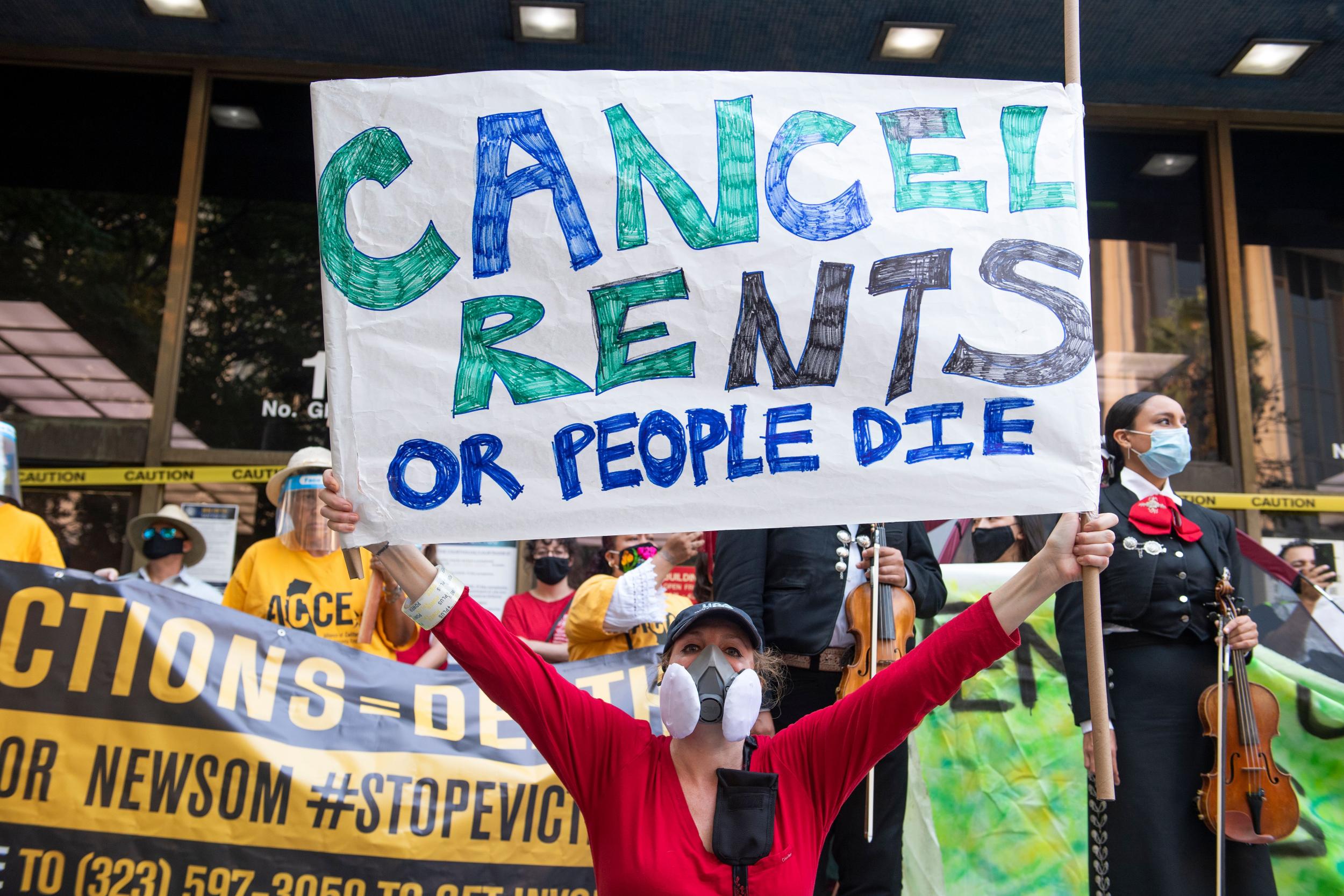CDC temporarily blocks evictions during Covid-19 pandemic
Housing advocates say 'half measure' merely extends financial cliff for millions of Americans as White House and Congress fail to extend unemployment relief

The Centres for Disease Control and Prevention (CDC) has issued a four-month block on evictions while millions of Americans have struggled to pay rent in the economic fallout from the coronavirus pandemic.
Effective 4 September, the public health order applies to residential renters at risk of homelessness or living in "congregate housing" if evicted "to prevent the further spread of Covid-19."
Renters also must prove their "best efforts possible to seek government assistance to make their rental payments" upon declaring that they are "unable to pay rent due to Covid financial hardship."
The sweeping federal order is one of the largest moves to provide relief, granting a broader moratorium on evictions than one imposed under the CARES Act, which offered eviction protections to millions of people housed in federally backed rental properties.
But the CDC's move does not provide financial relief to renters to help them pay mounting bills, as US unemployment falters and housing advocates warn a looming eviction crisis is imminent without immediate unemployment and rental relief. Under the order's conditions, renters must sign a declaration that they make less than $99,000 a year, or twice that amount if filing a joint tax return.
The order "does not relieve any individual of any obligation to pay rent, make a housing payment, or comply with any other obligation that the individual may have under a tenancy, lease, or similar contract," according to the CDC's order.
Landlords can continue to collect "fees, penalties or interest as a result of the failure to pay rent or other housing payment on a timely basis, under the terms of any applicable contract," according to the order.
The order expires on 31 December.
As many as 40m people in the US could be at risk of eviction, according to the Aspen Institute, while nearly half of all renters in the US are cost-burdened, or paying more than 30 per cent of their income on housing costs.
Protests across the US led by renters, tenant organisations and housing groups have demanded local and federal governments "cancel rent" and extend eviction moratoriums.
"A uniform, national moratorium on evictions for nonpayment of rent is long overdue and badly needed," the National Low Income Housing Coalition said in a statement. "The very least the federal government ought to do is assure each of us that we won't lose our homes in the middle of a global pandemic: the administration's action would do so and will provide relief from the growing threat of eviction for millions of anxious families."
The organisation said that while the"eviction moratorium is an essential step," it is merely a "half-measure that extends a financial cliff for renters to fall off of when the moratorium expires and back rent is owed," according to the organisation.
"This action delays but does not prevent evictions," the statement said.
The order follows a series of executive orders from Donald Trump, sidestepping Congress after it failed to extend federal unemployment benefits that expired at the end of July, as locally issued moratoriums on eviction proceedings were lifted and courts reopened their dockets.
But the president's order did not immediately halt evictions, despite his emphatic claims last month that renters are "not going to be evicted" because of his order.
"We are stopping evictions. We're not going to let that happen," he said last month. "We're not going to evict people ... We are not letting people be evicted."
His order, signed on 8 August, directed federal agencies to "consider" whether halting evictions are necessary as a health precaution during the pandemic.
House Democrats passed two measures with up to $100 billion for rental assistance, but the Republican-dominated Senate has not agreed to take up the legislation.
The National Low Income Housing Coalition has urged the president to work with Congress to put in place a national moratorium on all evictions with at least $100 billion in emergency rental assistance and housing vouchers, and another $11.5 billion for emergency resources for people experiencing homelessness.
"Without a significant and sustained federal intervention, America will experience an increase in homelessness the likes of which we haven't seen since the Great Depression," the organisation's president Diane Yentel said. "Allowing tens of millions of people to lose their homes during a pandemic is cruel and senseless."
Join our commenting forum
Join thought-provoking conversations, follow other Independent readers and see their replies
Comments
Bookmark popover
Removed from bookmarks